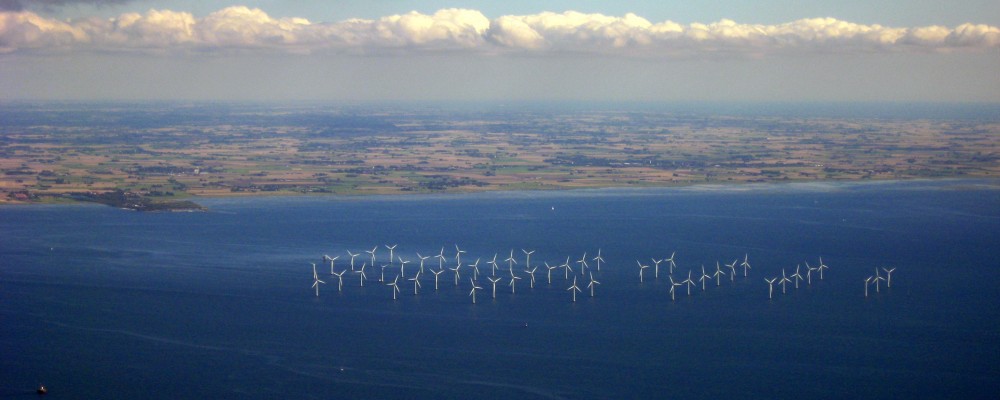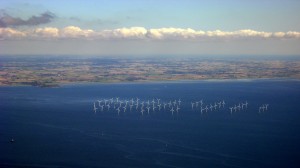Energy Policy and The Free Market

 For years environmentalist have pushed for alternative energy. Although very few of them advocate a full transfer from fossil fuels to renewable energy sources, many have advocated fairly extensive government support for alternatives. The reasons for this government subsidization are many.
For years environmentalist have pushed for alternative energy. Although very few of them advocate a full transfer from fossil fuels to renewable energy sources, many have advocated fairly extensive government support for alternatives. The reasons for this government subsidization are many.
Of course, as the name “environmentalist” implies, environmentalist generally support a shift to renewable energy for environmental reasons. The majority of environmentalist reject fossil fuels because they release greenhouse gasses when burned, primarily CO2. As the argument goes, CO2 has the potential to raise temperatures and thus disrupt regular weather patterns and the environment as we know it.
Although I agree that carbon dioxide is a greenhouse gas and thus can warm the earth, I disagree with the environmentalists on whether global warming is actually man-made and whether or not modern industry has raised CO2 levels enough to cause much damage.
“The average global temperature has risen about 1.4 degrees F (0.8 C) since 1880, according to the new analysis.” (NASA, 2013)
Ultimately, the evidence is clear that the globe’s temperature has increased in recent years. What is not clear is whether this is part of a natural cycle, and whether man has produced enough CO2 to make an impact.
Indeed, our logs of global temperatures have only become complete in the years since the invention of satellites. Before the space age, we really had no way of monitoring global temperature patterns, and, consequently, our records are incomplete. Also, many scientists attribute rising temperatures to a natural cycle of temperature swings. (For example, Western Washington University, 2008 or Journal of Atmospheric and Solar-Terrestrial Physics, 2012)
While the main reason for the implementation of environmentalist policies is indeed environmental, alternative energy advocates have many non-environmental arguments for their policies. Ans while conservatives can fairly easily dismiss global warming as merely part of a cycle, when confronted with arguments based upon economics and national security security, they become less steadfast in their ability to hold out against these policies.
So… What are these non-environmental arguments?
First, renewable energy advocates almost universally appeal to our fear of foreign nations – particularly those in the Middle East – as they attempt to put their legislation into effect. We are constantly hearing that we are reliant on foreign powers for our energy, and this scares us.
“If nothing is done to change the status quo, foreign oil dependence could continue to influence the economy, shape foreign policy, threaten national security, and adversely affect international affairs.” (University of California, 2008)
Second, advocates of alternative energy have also claimed that we should pursue alternative energy as a way of protecting ourselves from price swings in the oil industry. Essentially, they argue that we should have diversified energy portfolio. In investing, an investor with a diversified portfolio is largely protected from price swings because the investor has made investments into many different parts of the economy. This is basically what the alternative energy advocates argue – security through diversity.
“Energy security and diversification of the energy mix is a major policy driver for renewables. Growth of renewables generally contributes to energy diversification, in terms of the technology portfolio and also in terms of geographical sources. Use of renewables can also reduce fuel imports and insulate the economy to some extent from fossil fuel price rises and swings.” (IEA)
While I think that there may be some basis for supporting investment into alternative sources of energy as a means of increasing national security, I really believe that the free market does a better job and is capable of pursuing alternatives on its own without government intervention.
There is indeed a third argument that renewables advocates employ, and that is to point out the apparently finite amount of fossil fuels that we can extract. Advocates are continuously heard claiming that we will soon run out of oil and coal. However, I would not be so quick to doubt the free market’s ability to innovate and open up new sources of energy.
How does the free market ensure energy security?
As far as oil dependence goes, we must realize an objective reality. This objective reality is that rational actors act out of self interest. Furthermore, we must realize that this objective reality is the ultimate basis for trade.
As we are bombarded with all the chatter about oil dependence, we forget that trade is a mutually beneficial activity and that what we truly have in the energy sector is oil interdependence. Many nations – especially those in the Middle East – are reliant on revenue from oil exports to maintain their governments and their economies.
Furthermore, when we look beyond mere crude oil to refined oil, we see that the US is in fact a net exporter of refined oil. Although we may be reliant on other nations for crude oil, other nations are reliant on us for refined oil. (EIA, 2012) Again, this is all interdependence.
Iran is an example that shows how dependent upon us other nations are. US sanctions on Iranian oil have cut Iranian oil exports in half, and this has had devastating effects upon the Iranian economy. Of course, we in the US have only been insignificantly impacted by the sanctions.
Increasingly, energy dependence is being decreased by the natural gas boom.
“The United States has the world’s largest reserves of traditional fuels, and our energy sector is booming. Domestic oil production is up, and natural gas is so abundant that its price is now one-fourth of what it once was. But those welcome developments come in spite of – not thanks to – Washington. The good news arrives courtesy of “fracking,” the new technology of hydraulic fracturing.” (Heritage, 2012)
The natural gas boom has opened up huge amounts of fossil fuels, and with the discovery of fracking, we are now able to extract record amounts of natural gas. This boom in domestic production has helped to decrease dependence on energy imports, and it could make us a net exporter in the roughly the next ten years.
“IEA projects that while global energy demand will climb, America will emerge as a net exporter of natural gas by 2020 and be ‘almost self sufficient in net terms by 2035.'” (Heritage, 2012)
With regard to the issue of diversification, the free market will create incentives for diversification as they become needed. As oil becomes harder and harder to extract, its price will rise. As the price of oil rises, the difference in costs between oil and alternatives will narrow, and at that point it will become economically viable for companies to harness other sources of energy.
Beyond that, as the price of oil increases as oil becomes more scarce, it will become economical for the automotive industry to produce cars that use less and less fuel. Although this is not necessarily energy diversification per se, it is energy optimization. Essentially, as fuel becomes more scarce, we will find more ways to use less of it to do particular activities.
On the other hand, there are nations that have relatively unstable oil supplies due to internal conflict, or even war. A large majority of Middle Eastern nations, for example, do not have guaranteed stability, as illustrated by the Arab Spring as well as the precedence of the last thirty or so years.
From this angle I can see how it would be logical to advocate some governmental support for alternative energy. Instability can disrupt free market forces, and it could therefore be considered necessary to diversify our energy supply.
Indeed, in this case the government would be justified in propping up the alternative fuel industry. Yet, as with all policies, the government must do a cost/benefit analysis. With growing debt, is it worth investing in alternative energy? I would say that it is not, largely because the natural gas boom, and the dynamism of the free market.
Finally, we come to the issue of the limited amounts of fossil fuels. As previously stated, the law of supply and demand will eventually push the price of oil up enough that the free market will organically decide that alternative fuels are economical. Beyond that, however, the free market, through the discovery of fracking, has opened up huge amounts of previously unreachable fossil fuels. This has greatly expanded our reserves, and has extended the amount of fuel that we have to work with by several hundred years.
“One of the periodic fears generated by the Greens is that of the world running out of fossil fuels, of which the discredited “peak oil” theory was the latest (see Daniel Yergin’s The Quest). The potential increase in worldwide natural gas resources from currently estimated recoverable reserves of shale gas is 40 per cent, implying that about 250 years of gas supplies are now available. (See US Energy Information Administration’s “World Shale Gas Resources”.) These are also widely distributed, with China and the Americas having the largest assessed reserves (see map). Furthermore, the potential shale oil reserves are even larger. The US government estimates that the Green River Formation in the Western US contains three trillion barrels of shale oil – three times as large as total global oil consumption over the past 100 years (see www.thegwpf.org).” (Cato, 2012)
Human innovation, unlike coal, oil, or natural gas, is unlimited, and with it we can discover more and more ways to harness finite resources. The current problem is that the government is jumping the gun. In a time of economic sluggishness, we really do not need to be paying for an energy sector that could not really survive without governmental support.
If the United States wants growth, it really must realize that the free market will work for energy diversification when it becomes economical, and because of our growing debt and the recession, economic efficiency is all that the government should really be looking at. Instead of using subsidies to prop this industry up, the government should put its funds toward debt reduction.
Carl Marx, in the Communist Manifesto, said about capitalism that, “…during its rule of scarce one hundred years, has created more massive and more colossal productive forces than have all preceding generations together. Subjection of Nature’s forces to man, machinery, application of chemistry to industry and agriculture, steam-navigation, railways, electric telegraphs, clearing of whole continents for cultivation, canalisation of rivers, whole populations conjured out of the ground — what earlier century had even a presentiment that such productive forces slumbered in the lap of social labour?”
When we look at the grand scheme of things, capitalism has been the largest innovative and productive force in history. Unlike Marx, I believe that it will continue to be a driving force for development, security, and the maintenance of human dignity. Although we may at first feel the need to use the government to protect this sector of our economy, when we look at history, the free market delivers.
Discussion — No responses